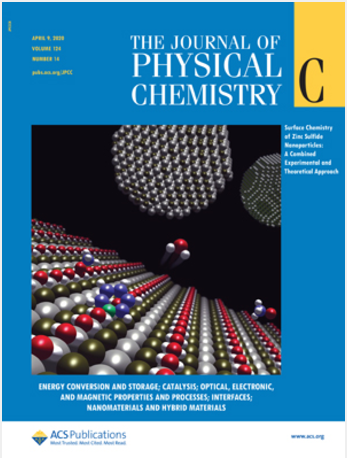用sba -16负载的铁催化剂在费托合成中制备高选择性低碳可持续航空燃料
IF 3.2
3区 化学
Q2 CHEMISTRY, PHYSICAL
引用次数: 0
摘要
本研究研究了创新型sba -16负载铁(Fe)催化剂,用于费托合成选择性生产可持续航空燃料(SAF)。在CO加氢反应中,以钾(K)和锰(Mn)作为促进剂,对10%、20%和30% wt %的铁负荷进行了评估。含铁量为20%的催化剂减少了金属与载体的相互作用,防止了孔堵塞,提高了催化性能。值得注意的是,在20Fe/SBA-16催化剂中添加1 wt %的Mn,可将可持续航空燃料(C8-C18碳氢化合物)的选择性从45%提高到55%,同时将二氧化碳的形成从8%降低到4%,将CH4的产生从11%降低到8%。这一改进是由于Hägg碳化物的形成增强,这是费托合成的一个高活性位点。相比之下,1 wt %的K提升强化了水气转换反应,使CO2生成从8%增加到14%。优化后的1Mn-20Fe/SBA-16催化剂在SAF生产中表现出优异的性能,同时产生低碳副产物(如CO2和CH4)。这些发现强调了sba -16支持的催化剂在推进可持续生物燃料技术方面的潜力。本文章由计算机程序翻译,如有差异,请以英文原文为准。

High Selectivity for Sustainable Aviation Fuel with Low CO2 Emissions Using SBA-16-Supported Iron Catalysts in Fischer–Tropsch Synthesis
This study investigates innovative SBA-16-supported iron (Fe) catalysts for the selective production of sustainable aviation fuel (SAF) via Fischer–Tropsch synthesis. Iron loadings of 10, 20, and 30 wt % were evaluated, with potassium (K) and manganese (Mn) as promoters in the CO hydrogenation reaction. The catalyst with 20 wt % Fe exhibited reduced metal–support interaction and prevented pore blockage, enhancing catalytic performance. Notably, the addition of 1 wt % Mn to the 20Fe/SBA-16 catalyst significantly increased selectivity for sustainable aviation fuel (C8–C18 hydrocarbons) from 45% to 55%, while reducing CO2 formation from 8% to 4% and CH4 production from 11% to 8%. This improvement was attributed to the enhanced formation of Hägg carbide, a highly active site for Fischer–Tropsch synthesis. In contrast, 1 wt % K promotion intensified the water–gas shift reaction, increasing CO2 formation from 8% to 14%. The optimized 1Mn-20Fe/SBA-16 catalyst demonstrated outstanding performance for SAF production with lower carbonaceous byproducts (e.g., CO2 and CH4). These findings underscore the potential of SBA-16-supported catalysts in advancing sustainable biofuel technologies.
求助全文
通过发布文献求助,成功后即可免费获取论文全文。
去求助
来源期刊

The Journal of Physical Chemistry C
化学-材料科学:综合
CiteScore
6.50
自引率
8.10%
发文量
2047
审稿时长
1.8 months
期刊介绍:
The Journal of Physical Chemistry A/B/C is devoted to reporting new and original experimental and theoretical basic research of interest to physical chemists, biophysical chemists, and chemical physicists.
 求助内容:
求助内容: 应助结果提醒方式:
应助结果提醒方式:


